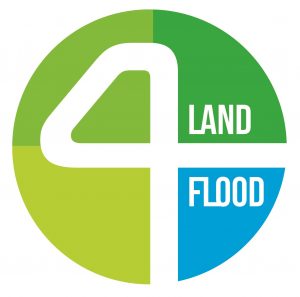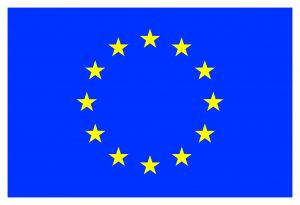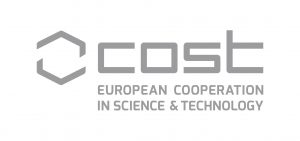
Strategy how to avoid and separate municipal waste on the local level and the forming of the secondary raw materials market in the Czech Republic
Evaluation of the influence of chosen factors on the secondary raw materials market functioning.
The recovery and reuse of secondary raw materialsoriginating from waste in the Czech Republic belongs to the key strategies how to reduce the amount of waste going to landfillsor incinerated (with or without energy recovery). About the amount of waste recovered or reused as secondary raw material decided the market that is based on the supply of materials suitable for reuse and recovery and on the demand for these materials. The supply side of the market is based on the separate collection of municipal waste organised by municipalities. Demand side of the market represent the recovery facilities that are reprocessing waste into secondary raw materials used in the production process. Between supply and demand side of the market the collection organisations are organising the transport of suitable materials to the recovery and reuse. Therefore, the project is based on the analysis of the secondary raw materials market in the Czech Republic. Working on project proposal we came from the fact that the potential of reuse and recovery of secondary raw materials is usually analysed from the perspective of the supply side of the market. We are looking for answers on following questions: a) How to motivate households to separate waste into fractions suitable for reuse and recovery, b) How to define separate collection system to be user friendly? c) How to increase the separate collection in general? The main purpose of these strategies is to save natural resources that are detriorated by the landfilling and incinerating waste and to reduce the pressure on limited capacities of the waste disposal.
| Funding Agency: | Czech Ministry of the Environment |
| Duration: | 6/2007–12/2009 |
| Contact Person: | Jan Slavík, e-mail: slavik@ieep.cz |
| Researchers: | Jan Slavík, Jitka Šeflová |
| Outputs: | SLAVÍK J. a kol. (2009): Poplatkové systémy v obcích – rizika a příležitosti pro odpadové hospodářství. |
The preparation of Strategic analytical document for the reuse and recovery of secondary raw materials (Secondary raw materials policy)
The main goal of the study was to establish analytical materials for the creation of secondary raw materials policy of the Czech Republic
The aim of the study was to describe priority material flows of secondary raw materials in and out of the Czech Republic. Following criteria were in the centre of attention: a) definition of key terms and data sources, b) definition of legal environment, c) analysis of technical and economical conditions for the recovery and reuse of secondary raw materials, d) analysis of the role of secondary raw materials market in the national economy and evaluation of factors that influence the treatment with secondary raw materials. The priority secondary raw materials were: metals, paper, plastics, glas, wood, construction masses, subsidiary energy products, tyres, electric and elektronic equipment, batteries and accumulator, end of life vehicles
| Funding Agency: | Czech Ministry of Industry and Trade |
| Duration: | 2010 – 2011 |
| Contact Person: | Jan Slavík, e-mail: slavik@ieep.cz |
| Researchers: | Jan Slavík, Jitka Šeflová, Alena Hadrabová |
| In Cooperation with: | EKO-KOM, a.s. + external experts |
| Use of Results: | Outcomes of the study were used for establishing the National Secondary Raw Materials Policy |
Czech-Saxon Cooperation in the Railway Transport Enhancement
 |
 |
Support of the railway transport enhancement of the Prague – Dresden railway-track.
The goal of the project is to encourage the cooperation on both sides of the border for the purpose of the railway transport enhancement. There is a long-term plan to build the high-speed railway corridor Prague-Dresden that needs to be supported by the regional planning documents and other preparatory actions. There is a problem of the bottle-neck on Czech-German borders that needs to be solved. The project is coordinated by the Czech state company responsible for the management of railways.
| Funding Agency: | Cooperation Programme Free State of Saxony – Czech Republic 2014-2020 |
| Duration: | 1/2017–12/2019 |
| Contact Person: | Kristýna Rybová (email: kristyna.rybova@ujep.cz) |
| Researchers: | Kristýna Rybová, Vladan Hruška |
| In Cooperation with: | Czech Management of Railways, state company |
| Web-site: | Project Website |
Economic Education and the Praxis in the Usti Region
Practical economic courses for high school students and potential employees to increase the employment of youths.
The project addressed increasing requirements to youths at the labor market. The goal was to introduce the real world requirements of employees to high school students and to support them with the practical employment problem solutions. Supporting teaching materials for high school students were developed within the project. The opinion exchange among students, teachers and potential employers was encouraged.
| Funding Agency: | Czech Ministry of the Education, Youths and Sports |
| Duration: | 2014 – 2015 |
A Theoretical Analysis of the Interdependences between Environmental Policy, Regional Planning and Regional Development Policy
The analysis of mutual interdependences of Czech policies, their methodology and regulatory instruments.
“The project content reacts to the present discrepancies in theoretical definitions and the practical enforcement of state policies aimed at environmental protection, regional development and regional planning. These discrepancies decrease the effectiveness of these policies, namely in relation to their ability to achieve predefined objectives. They happen even despite the fact that the “triangle” of these policies has the potential to achieve multiple effects in reference to the subject of their interest. In many cases a misunderstanding of the defined principles of particular policies and the existing mutual dependencies causes the discrepancies.
The main outputs of the project are an analysis of the theoretical approaches to this issue, a proposal for a methodology to evaluate the influence of natural resources used in regional development and regional planning and a graphic documentation of the relationship between developing a region and natural resources use.
| Funding Agency: | Czech Grant Agency |
| Duration: | 1/2009 – 12/2010 |
| Contact Person: | Jan Slavík, (email: slavik@ieep.cz) |
National Development Plan 2007–2013
Cooperation on the strategy formulation for the National Development Plan in the field of inovations, knowledge economy and macro-economic forcasting.
In connection with preparing for a new programme period of European Union policy for social and economic cohesion 2007–2013, it was necessary to update the National Development Plan 2004–2006 (NDP). The National Development Plan was prepared as a key document for the National Strategic Reference Framework of the Czech Republic which was considered as a strategic document for negotiations with European Commission about the programme period 2007–2013. Priority axes and the goals of the NDP stemed from the defined strategy and then they were projected onto the structure of the prepared operational programs in the Czech Republic.
| Funding Agency: | Czech Ministry of the Regional Development |
| Duration: | 2005 |
| Contact Person: | Jiřina Jílková (email: jirina.jilkova@ujep.cz) |
| Use of Results: | Development of background materials for the strategic planning |
MILUnet: Multifunctional Intensive Land Use in Europe
The support of multifunctional land uses in urbar areas through the knowledge sharing and exchange.
“MILUnet aimed at the network creation dedicated to the generation, collection, exchange and transfer of knowledge on the subject of Multifunctional Intensive Land Use (MILU) as a means to realise more sustainable (urban) development in Europe. The lead partner was HABIFORUM, a public organization in the Netherlands focussing on innovative multifunctional intensive land use.The main objectives of MILUnet were to:
1. identify and analyse the opportunities MILU presents for sustainable urban development,
2. identify the barriers to MILU being adopted,
3. find effective policies and instruments to realise MILU,
4. disseminate knowledge on MILU strategies.
| Funding Agency: | INTERREG IIIC |
| Duration: | 2003–2007 |
| Contact Person: | Jiřina Jílková (email: jirina.jilkova@ujep.cz) |
| Researchers: | Martin Pělucha, Oto Potluka |
| In Cooperation with: | HABIFORUM |
Ex-ante Evaluation of the Sectoral Operational Programme Rural Development and Multifunctional Agriculture
Ex-ante evaluation of the strategic document of the Czech Ministry of Agriculture.
The project concerned with ex-ante evaluation of the Operational Programme Rural Development and Multifunctional Agriculture. The team aimed to test the functionality of this document with the use of its ex-ante evaluation. Tt provided background information for the successfull finalization of the programme.
| Funding Agency: | Czech Ministry of Agriculture |
| Duration: | 2002 |
| Contact Person: | Jiřina Jílková (email: jirina.jilkova@ujep.cz) |
| Researchers: | Martin Pělucha, Oto Potluka |
Analysis of Agricultural Non-market Functions
The analysis of the Czech agricultural land management and the overview of the good practise of environmental subsidy provisions in EU member states.
The project provided the analysis of agricultural non-market functions which appear from the definition of international rules and their limits. The aim of the project was the interdisciplinary analysis of the soil treatment and monitoring of agricultural non-market functions. The project also summarized experiences of the European Union member states in the provision of environmental and other subsidies.
| Funding Agency: | Czech Ministry of Agriculture |
| Duration: | 1998 |
LAND4FLOOD: Natural Flood Retention on Private Land
 |
 |
 |
How to encourage land owners to realize or cooperate in realization of natural water retention measures for the flood damage reduction?
Climate change increases the frequency and intensity of future flood events, leading to higher costs of flood damages and increasing the public demand for protective measures. Traditional flood protection measures, mainly based on grey infrastructure (i.e. dikes, dams, etc), are not sufficient to cope with dynamic flood risk alone. Nature-based solutions such as Natural Water Retention Measures (NWRM) are promising options to mitigate flood risks as a complement to grey infrastructure. However, a common characteristic of green infrastructure measures is that they often claim more land than traditional methods.
The challenge is to consider multifunctional land uses, which enable temporary flood retention and flood storage on private land without restricting the provision of other ecosystem services. The reconciliation of flood risk management and land management is needed. Since all NWRM primarily need to be implemented on private land the consideration of multiple aspects includes: economic issues (e.g. how to compensate for or incentivize flood retention services); property rights issues (e.g. how to allow temporary flood storage on private land); issues of public participation (e.g. how to ensure the involvement of private landowners) as well as issues of public subsidies (e.g. how to integrate/mainstream flood retention in agricultural subsidies). LAND4FLOOD cost action aims to address these different aspects and to establish a common knowledge base and channels of communication among scientists, regulators, land owners and other stakeholders in field.
Project outputs are developed in cooperation with the Department of Geography of the Faculty of Science UJEP.
| Funding Agency: | COST European Cooperation in Science and Technology |
| Duration: | 11/2017 – 9/2021 |
| Contact Person: | Lenka Slavíková, e-mail: slavikova@ieep.cz, lenka.slavikova@ujep.cz |
| Researchers: | Lenka Slavíková, Jiřina Jílková, Jan Macháč, Pavel Raška |
| Web-site: | land4flood.eu |
| Outputs: | Video about LAND4FLOOD
Book Nature-based Flood Risk Management on Private Land Book Spatial Flood Risk Management Many other papers, policy briefs and other outputs: HERE |

